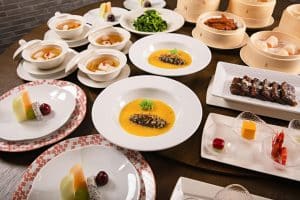Culinary School Lessons for Home Cooks
If you are an avid home cook looking to elevate your skills and take your dishes to the next level, you may have considered enrolling in a culinary school. But with the busy schedules and financial constraints, this option may not be feasible for everyone. However, fear not! The good news is that you can still learn valuable culinary school lessons right in the comfort of your own kitchen. In this article, we will explore how you can incorporate techniques and tips from culinary school into your home cooking to impress your family and friends.
Introduction to Culinary School Lessons
Culinary school is a professional training program that prepares individuals for a career in the food industry. It typically covers various topics such as cooking techniques, food safety, flavor profiles, and menu planning. While enrolling in a culinary school can provide a comprehensive learning experience, the techniques and knowledge taught can also be applied to home cooking. Below are some culinary school lessons that you can easily incorporate into your home cooking routine.
1. Master the Basic Cooking Techniques
One of the fundamental aspects of culinary school is mastering basic cooking techniques such as knife skills, sautéing, braising, and roasting. These techniques not only improve the taste and texture of your dishes but also make the cooking process more efficient. For example, learning proper knife skills can save you time by allowing you to chop vegetables and fruits quickly and evenly. Mastering different cooking techniques can also add versatility to your dishes and elevate your cooking to the next level.
2. Understand Food Safety
Another essential aspect of culinary school is understanding food safety. Foodborne illnesses are a common concern in the food industry, and culinary school teaches individuals how to handle food safely to prevent any contamination. This includes proper food storage, cooking temperatures, and personal hygiene. Incorporating food safety practices in your home cooking will not only protect you and your family from getting sick but also ensure that your dishes are prepared to a high standard.
3. Experiment with Different Flavor Profiles
In culinary school, students learn how to balance flavors and create well-rounded dishes. This includes understanding different flavor profiles such as sweet, salty, spicy, and sour. By experimenting with different flavor combinations, you can elevate the taste of your dishes and impress your guests. Incorporate different herbs, spices, and condiments in your cooking to add depth and complexity to your meals.
4. Plan Menus Like a Pro
Culinary school teaches students how to plan menus that are well-balanced and appealing to the palate. Similarly, home cooks can benefit from this lesson by planning their meals in advance. This not only saves time but also ensures that you have a variety of nutrients in your diet. Additionally, planning menus can help you make use of ingredients that you already have in your pantry, resulting in less food waste.
5. Get Creative with Plating
In culinary school, plating is considered an art form. Aesthetic presentation of dishes is just as important as their taste. Creative plating is not only pleasing to the eye but also makes the dining experience more enjoyable. You do not have to be a professional chef to plate your dishes attractively. You can start with simple techniques such as using various shapes and colors or garnishing with fresh herbs and edible flowers.
Conclusion
Enrolling in a culinary school may not be a feasible option for everyone, but that doesn’t mean you cannot learn valuable lessons from it. Incorporating basic cooking techniques, understanding food safety, experimenting with flavors, planning menus, and getting creative with plating can help you elevate your home cooking skills. So, the next time you step into the kitchen, channel your inner culinary school student and impress your loved ones with delicious and well-presented dishes.
Remember, practice makes perfect, so keep experimenting, learning, and having fun in the kitchen.










